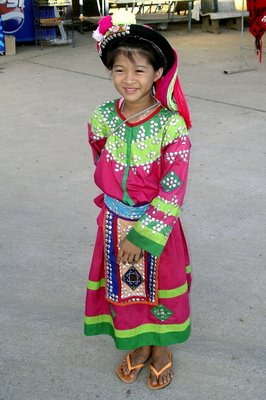
This cute girl from Thailand is not the subject of this post. She is simply pictured here to help us recognize the power each of us has, including the children. I read the story below (from charityfocus.org) and was amazed at the selflessness, generosity, and wisdom demonstrated by a 6-year old. And for the media, I ask, why isn't this story on the nightly news?
Inspiration of the Day:
6-year-old Ryan Hreljac listened intently as his teacher talked about how without access to clean water, people become ill and sometimes even die. "Every penny helps," the teacher said, explaining that a penny buys a pencil, "and $70 pays for a well." Ryan ran home and begged his parents for $70. They told him to earn it through extra chores, and so while his brothers played, Ryan cleaned for two hours. He got $2. Instead of watching a movie with family, he washed windows. Another $2. Months later, he finally had $70, and his parents set up a meeting to donate the money. Ryan nervously handed over the cookie jar holding $70. "There's an extra $5 here," he said, lowering his voice. "You might want to buy some hot lunches for the people making the well." And Ryan hasn’t stopped there: now 14, he has helped raise over $1 million for wells! This inspiring profile is from 2001.
Read more about this story if you are interested. What would you give up, in time or money, to help those so much less fortunate than yourself have clean drinking water? A fair question I think, and one I am asking myself.
Addendum. Here is a more complete, and it appears accurate, story of Ryan's Well. interestingly, it is even more moving to me. Please read it and realize what impact any one of us can have on the world and humanity.






